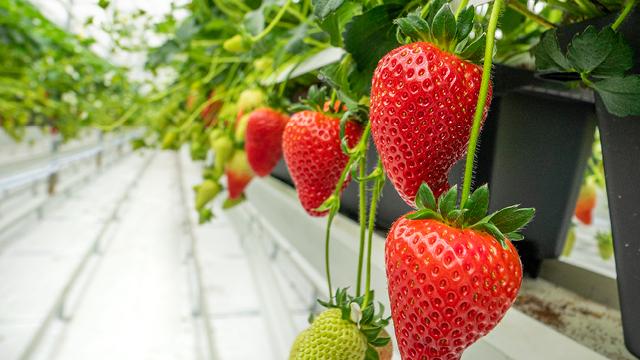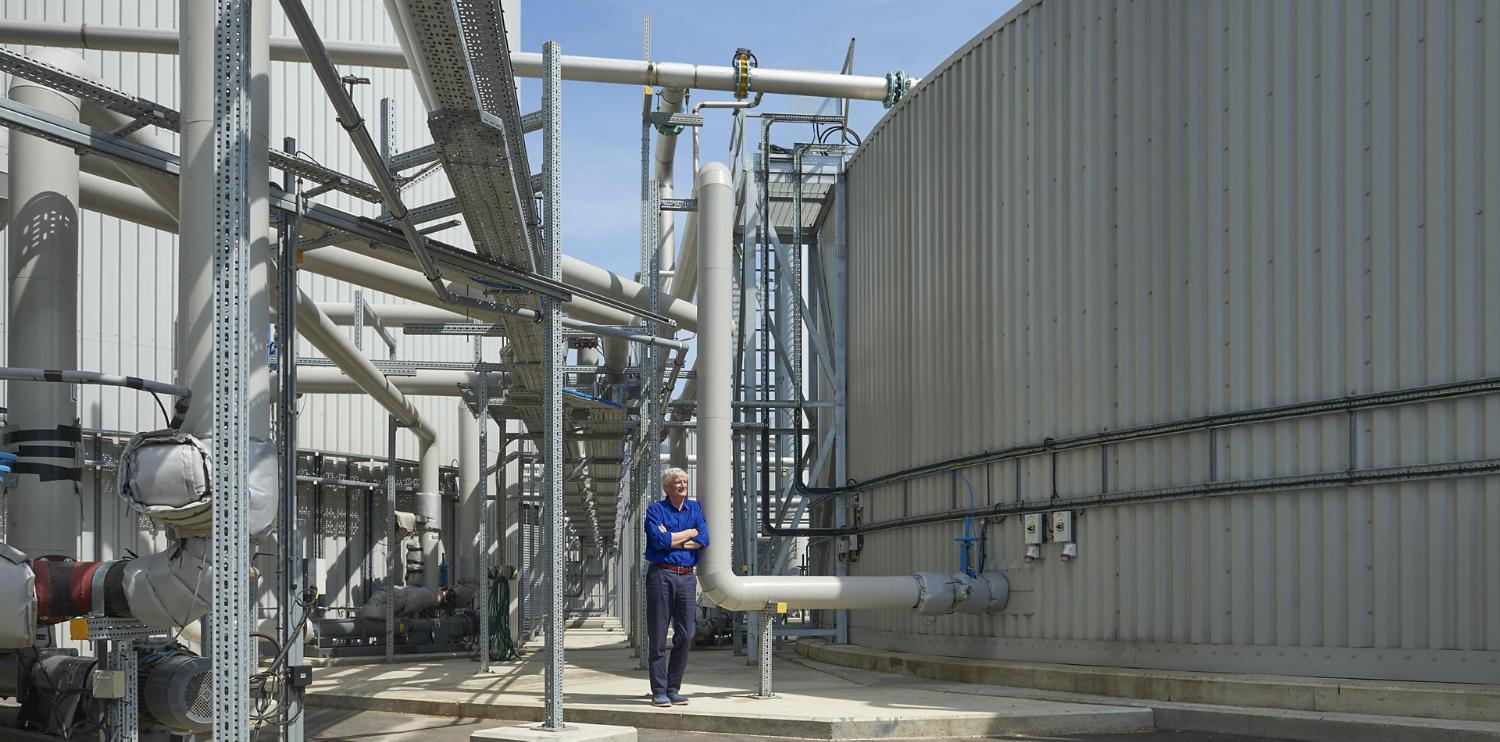Sustainability | Dyson Farming
Farming the Dyson way
James Dyson is investing in the future of sustainable British agriculture. By applying Dyson expertise and focusing on technology and innovation, Dyson Farming – the largest farming business in the UK - is improving harvests while protecting the environment.
Food security is an increasingly critical factor in food production and with around 46% of the UK’s food imported every year1, we are vulnerable to supply chain disruption and often much higher carbon footprints of the produce we consume.

Investing in the future
Dyson Farming has been focused on getting the basics right – soil quality, infrastructure, new technology, and environmental schemes. Excluding land purchases, over £140m has been invested so far in technology and research to grow food sustainably, at scale and in harmony with the environment.
James Dyson’s first farm purchase, in 2013, was the Nocton Estate, just south of Lincoln in the UK. The farming business has grown since then, and we are now the largest farming business in the UK, with 36,000 acres of high yielding farmland across Lincolnshire, Oxfordshire, West Berkshire, Somerset and Gloucestershire. Led by a team of brilliant farming minds and a hefty dose of commercial sense, we produce 40,000 tonnes of wheat, 9,000 tonnes of spring barley, 12,000 tonnes of potatoes, 29,000 tons of sugar beet and 1,250 tonnes of strawberries as well as rearing 2,000 sheep and 800 cattle.
Growing crops is a biological process that we cannot do successfully without maintaining the ecological system. Improving soil health, restoring watercourses, managing woodland and grassland, and supporting species diversity are actions that ensure the continued productivity of our land. We actively manage 400km of hedgerows, 11,700 standalone trees and 250km of ditches, rivers and streams.
Since 2018, we have recorded the numbers of 20 species of rare birds on Dyson Farming land. Through our work to improve the habitats and nesting opportunities for rare birds, we have seen numbers of Red Listed Species, including yellow wagtail and corn bunting, increase. 111 barn owl boxes have also been erected across our land, with 74 chicks and eggs in 2021. Stable predator numbers are a good indication of the health of local ecosystems.
Dyson Farming employs 241 people directly with an average age of 40 versus the industry average of 59, providing them with on-going education and training throughout their careers. Amongst them are agronomists, farm managers, researchers, engineers, shepherds, technical data analysts and drone pilots. Their knowledge, combined with strategic investment in innovation, is yielding results.
The circular farm system
We operate a highly efficient circular farm system. Our anaerobic digesters are fed with our energy crops which break down and create gas. This gas powers engines which generate enough renewable energy to power the equivalent of 10,000 homes. The waste digestate is spread back on our farmland as fertiliser, increasingly taking the place of synthetic chemicals.

Strawberries at scale
The latest addition to our circular farming system is our 26-acre glasshouse in Carrington, Lincolnshire. It supports the advancement of high-tech, sustainable farming in the UK, avoiding unnecessary food miles that come from imported strawberries outside the traditional English strawberry season.
Powered with renewable electricity and surplus heat from Dyson Farming’s adjacent anaerobic digester, the glasshouse is home to 1.25m strawberry plants which produce 1,250 tonnes of delicious strawberries each year for British consumers.
Technology and farming
Working in collaboration with the engineers at Dyson Technology, Dyson Farming is putting innovation and efficiency at the forefront of its business. The increasingly symbiotic relationship between our technology business and our farming business will yield new approaches to drive sustainability and performance in Dyson products, while opening up new opportunities for the further use of technology on our farms.
Footnotes
1a About 54% of the food on our plates is produced in the UK, including the majority of grains, meat, dairy, and eggs. Self-sufficiency is about 54% in fresh vegetables, and 16% in fruit.










